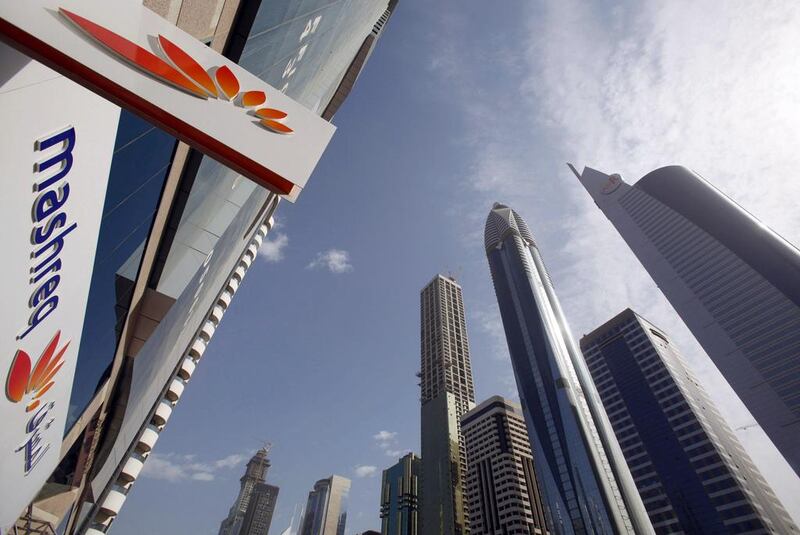Commercial Bank of Dubai and Mashreq Bank are the latest lenders to disclose their exposure to embattled private equity firm Abraaj Group that is reeling under allegations of misusing investors funds.
Dubai-headquartered CBD has $166.25m (Dh611.8m) worth of exposure to the buyout firm through “secure credit facilities," it said on Thursday in a statement to Dubai Financial Market. Mashreq owns 16.7 million shares in Abraaj Holding valued at Dh66.03m, the lender said in a separate statement to the bourse. The bank also holds 12.5 million shares in Menasa Capital Holding, a Dubai International Financial Centre subsidiary of Abraaj, worth Dh459,125, it said.
"Based on the disclosures made so far, it seems that for most banks the impact is manageable," Shabbir Malik, banking analyst at EFG-Hermes, said. "For Mashreq and most banks who disclosed exposure to Abraaj, there should not be a material impact on their profitability."
_______________
Read more:
[ Dubai Financial Services Authority to investigate Abraaj mismanagement claims ]
Abraaj founder Naqvi to skip hearing to avoid possible arrest
Abraaj founder Naqvi faces UAE court ruling over bounced cheque
Abraaj restructuring request approved by Cayman Islands court
_______________
Mashreq and CBD's disclosures to the market follow Shuaa Capital and Ajman Bank’s announcements on Wednesday. Shuaa and its clients hold a 3.6 per cent stake collectively worth $8.83m in The Abraaj Buyout Fund II. Ajman Bank said it has no direct exposure but is involved in a syndicated funding to Stanford Marine, a company that is 51 per cent owned by Abraaj Capital. Analysts said the size of the banks' exposure relative to the size of their loan books meant there is little material impact on the lenders.
Oman Insurance Company has an exposure of Dh19.7m through an investment in Abraaj property fund ASAS, it said on Thursday in a statement to the DFM. ASAS is an income-generating, shariah-compliant real estate fund, according to Abraaj's website.
The UAE markets did not see a major loss in value in reaction to the multiple disclosures, with the DFM and ADX falling 0.28 per cent and 0.1 per cent respectively by the end of trading.
The market reaction is "justifiably muted" given that the banks' exposure to Abraaj is limited, Khalid Howladar, managing director of Dubai-based credit advisory firm Acreditus, said.
"The main fallout of the event is the international investor perception around governance, transparency and accounting quality," he said. "This will make fund-raising harder for local private equity firms."
The Abraaj fallout is an opportunity for the sector to become more transparent, Richard Segal, senior emerging market analyst at Manulife, said.
"This means a lot more due diligence and internal controls to ensure funds cannot be co-mingled and greater separation between owners and senior management of a private equity fund company, and those deploying the capital into the individual investments," he said.
The Dubai-listed financial institutions join companies such as First Abu Dhabi Bank, Air Arabia and Union Arab Bank in reporting to the market their exposure to Abraaj, which is undergoing a court-supervised restructuring.
FAB on Tuesday said it has direct exposure to the buyout firm through a fully secured three-year $21.4m loan maturing in April. Sharjah-based budget airline said last month it has an exposure of $336m to Abraaj through fund portfolios and short-term investments.
On Thursday prior to the start of market trading Emaar Malls, Arabtec, Dubai Refreshment, Dubai Investments, Tabreed, Ascana, Deyaar, Mazaya and the Dubai Financial Market said they had no exposure to the private equity firm. After market close, Dubai-based retailer Marka, Emirates Islamic Bank and insurance company Dar Al Takaful also said they had no exposure to Abraaj.






